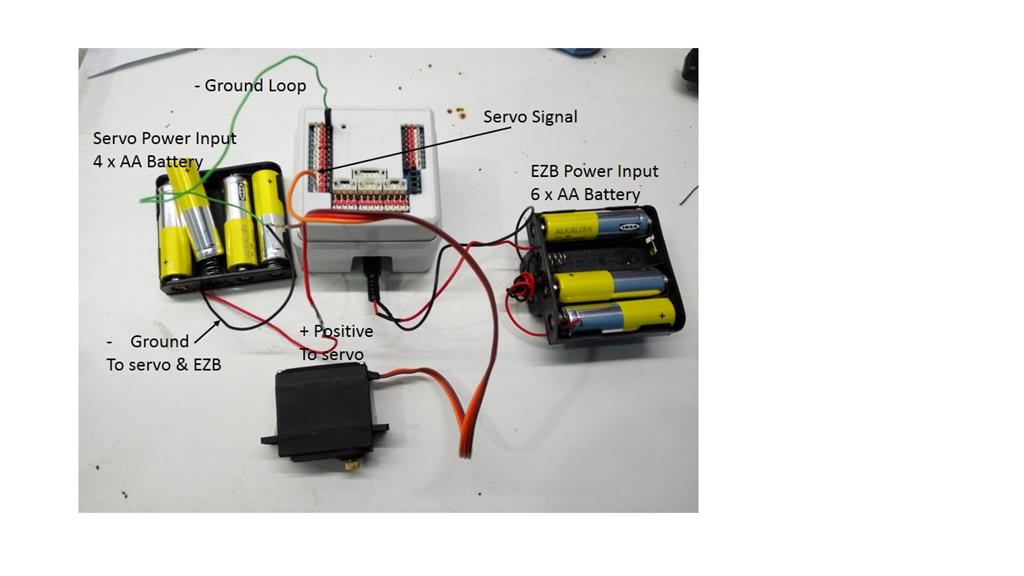jimbo
Malaysia
Asked
— Edited
OK. I have earlier burnt a EZB. Not sure if its my fault or problem with the EZB. Had to buy a new one.
Anyway, this is how I connected my EZB to my power and servo.
I just want to make sure that the connection is correct and can be used before I burn another EZB.


Yes. This looks correct. You should place some electrical tape over those bare wire connections. You don't want to have a short if you get them across something.
Dave, Thanks. The bare cables are only to show for this picture. The actual ones are all nicely done.
So, this connection will not burn my EZB again, right? Even if I were to run 20 servos using this configuration.
The wiring looks correct from what I can see in the picture. Your power supply of 4 AA batteries wont supply the needed amps for 20 servos though. You wont burn up your EZB (maybe brown it out) but 20 servos wont work with only supplying what little amperage 4 AA batteries will eek out.
Brown it out? What does that mean?
@Jimbo a brown out is when the ezb4's logic voltage drops below 4.5v... In effect starving the ezb for power.... so it reboots.... This mostly happens when using in-adequate power supplies or weak/wrong type of batteries...
Ahh... I see, Thank you so much for your help.
It's important to supply the proper voltage to all devices. However DC motors are tolerant to lower voltages and will only slow down. Over voltage is a problem and need to be avoided.
Amperage is the real thing to watch. In simple terms, Power supplies and batteries supply the amps. Motors and devices draw (or suck) amps. You want to make sure you add up all the amps of all devices, motors and lights connected to your power source. Then add about 20%. Compare that number to what your power source is rated for to see if you will be able to supply the needed amps.
Another critical factor is wire and connector size. If the wire is too small your device will be starved for power and the wire will heat up. A good tight and proper connection at all points is always needed.
Think of an electrical circuit like a water pipe; the amperage is the water, the voltage is the pressure behind the water pushing it and the conductor is the pipe. Change any of these in any way and you change the flow of the water and how it comes out of the nozzle. If you have a bad connection it leaks. Think through each one and compare it to an electrical circuit. The only thing is, if you mess up an electrical circuit you don't really want to use that water to put out the fire.